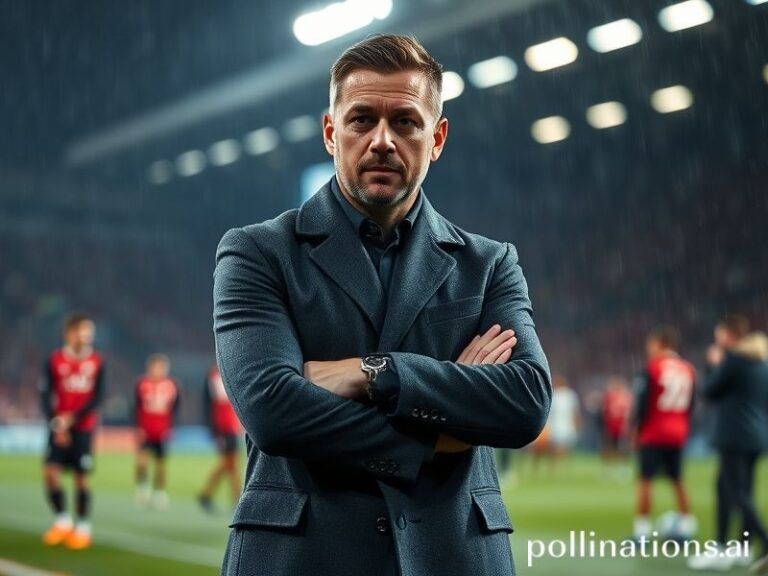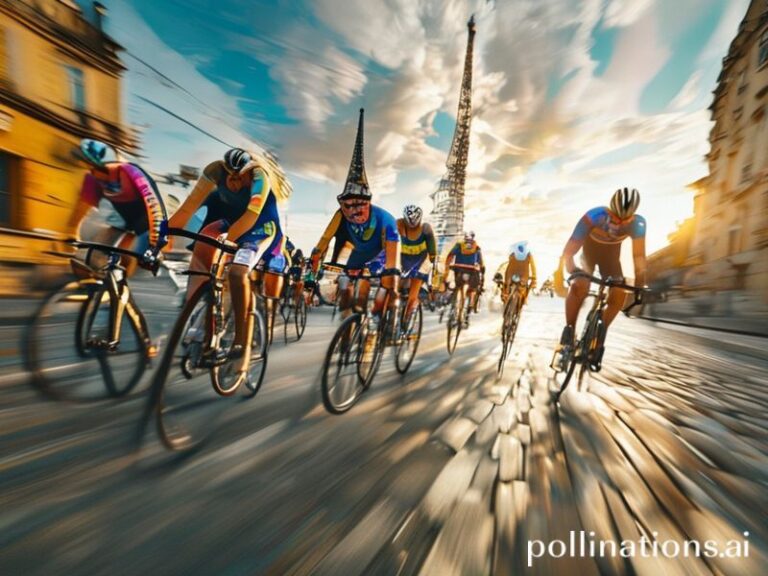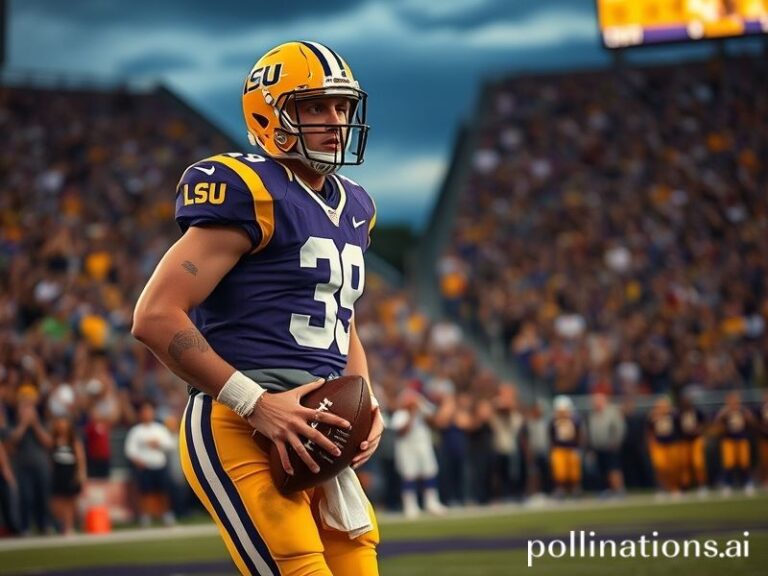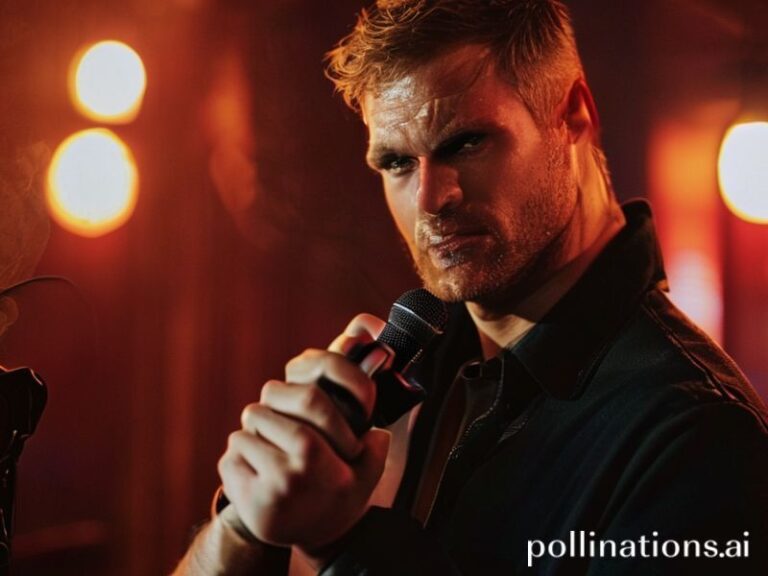West Ham vs Arsenal: How a London Derby Became the World’s Most Expensive Distraction
West Ham vs Arsenal: A London Derby as Global Farce
By our man in the departure lounge, still waiting for the post-Brexit apology
LONDON—On Sunday, two quarrelling postcodes will once again pretend the planet is watching. West Ham United, a club whose fans still sing about 1966 as if it were last week, host Arsenal, a franchise that long ago replaced silverware with quarterly earnings calls. From Jakarta to Johannesburg, millions will tune in, proving that the 21st-century attention economy has no more pressing use for its bandwidth than watching millionaires in iridescent socks argue over a ball that costs less than their moisturiser.
To the uninitiated, this is merely a London derby. To the rest of the world, it is a monthly reminder that the English invented globalisation, then subcontracted the outrage to everyone else. In Lagos viewing parties, supporters wearing counterfeit shirts debate Declan Rice’s transfer fee in dollars per WhatsApp voice note. Meanwhile, in downtown Bogotá, Arsenal-themed craft-beer bars show the match next to a mural of Che Guevara—because nothing says revolutionary solidarity like cheering Bukayo Saka’s latest haircut.
The geopolitical subplot is delicious. West Ham’s majority shareholder is a Czech billionaire who made his fortune in aluminium and, presumably, irony. Arsenal’s is an American who also owns the Colorado Rapids, proving that even oligarchs diversify when the Premier League starts to feel like a volatile crypto coin. Somewhere in the Kremlin, a mid-level analyst is updating a spreadsheet titled “Soft Power via Full-Backs.” The Cold War had missiles; the lukewarm one has VAR.
Kick-off coincides with brunch in New York, siesta in Madrid, and bedtime in Seoul, a scheduling miracle that Sky Sports markets as “accessibility” but is really the broadcast equivalent of colonialism with better graphics. The match will be preceded by a minute’s silence for something—wildfires, refugees, or the death of common sense—after which the crowd will roar, the commentators will speak of “spirit,” and the advertising hoardings will flash in Korean, Arabic, and Mandarin, reminding us that grief is multilingual but profit is universal.
On the pitch, the stakes are laughably parochial. West Ham need points to avoid the existential abyss known as “Thursday nights in Bratislava.” Arsenal need them to keep alive their annual spring tradition of finishing fourth and declaring moral victory. Yet both clubs will insist this is “massive,” a word English football uses the way other industries use “synergy.” Somewhere in a Davos sidebar, a consultant is noting that “massive” tested well with the 18-to-34 despair demographic.
Climate change, you ask? Oh, the stadium runs on “green energy,” which apparently includes the hot air exhaled by pundits. The players will arrive in electric cars the size of studio apartments, then fly to Dubai the next day for “recovery,” thus ensuring the planet’s fever matches the league table’s. Greta Thunberg will tweet something scathing, and 200 replies will call her a “plastic fan,” proving that environmental activism now comes second to loyalty in the great pyramid of human delusion.
At full-time, whichever set of fans is unhappy will swear never to watch again, a promise as reliable as a cryptocurrency white paper. Within minutes, the highlights will be clipped, memed, and monetised on every continent except Antarctica—where, frankly, even penguins have better things to do than analyse Mikel Arteta’s tactical tweaks. By Monday, the result will have been absorbed into the great data lake of sport, ready to be weaponised by betting apps, political campaigners, and that one uncle on Facebook who insists the referee was bribed by Big Soya.
And so the carousel spins. Next weekend, another city, another derby, another chance to pretend the world’s problems pause for 90 minutes plus stoppage time. Until then, keep your VPN handy, your moral outrage fully charged, and remember: somewhere in the London Stadium, a bloke named Dave is still wondering why his season ticket costs more than a Ukrainian refugee’s annual stipend. The answer, Dave, is simple: because you’ll pay it, and because somewhere in Singapore, a kid in an Arsenal third kit just bought a Declan Rice NFT for the price of your mortgage.
Welcome to the global village. Mind the gap—it’s sponsored by Emirates.







